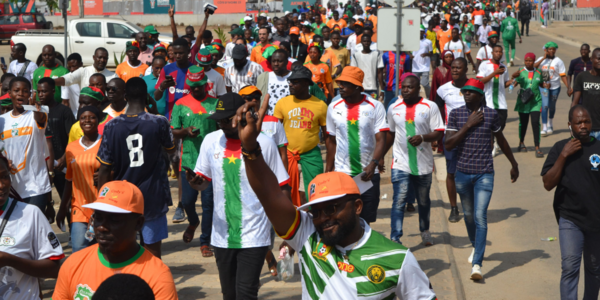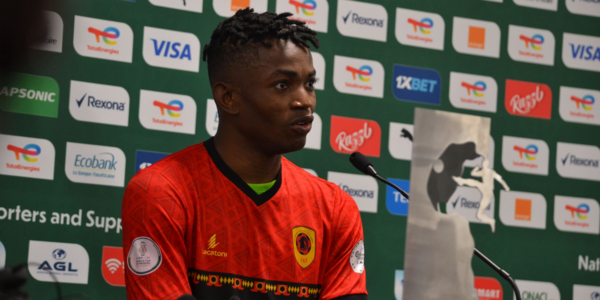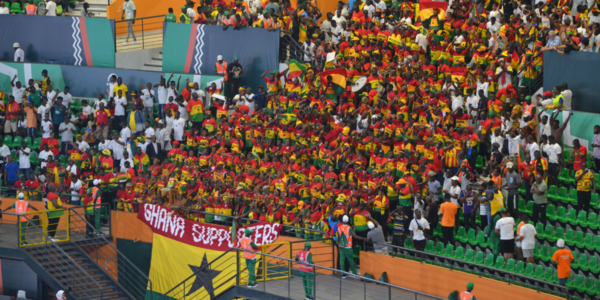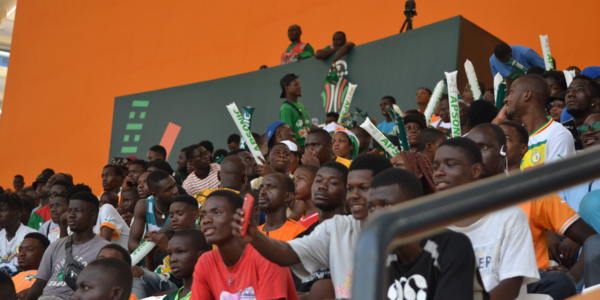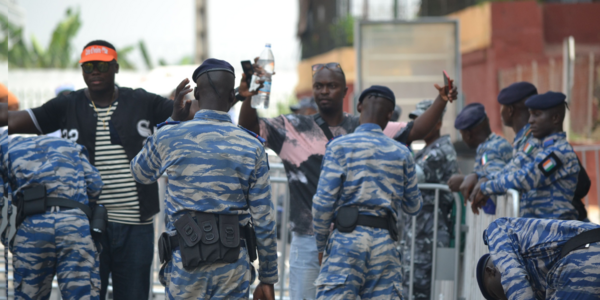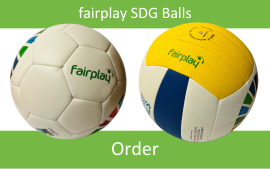Africa Cup 2024: Côte d'Ivoire between euphoria, drama and healing
The bus for the international media people left Abidjan very late. After a six-hour drive, we reach Bouaké, the country's second largest city. The escort vehicle with heavily armed gendarmes tries to find the right access road, the bus makes its way through cheerful fans. The match between Algeria and Burkina Faso has now started. When we finally arrive at the media entrance, we are told that we are too late for the SAD tickets and are not allowed in the media stand. The South African photographer, who works for the Associated Press, isn't the only one who looks reluctant: "Why is CAF doing this to us?".
We only enter the Bouaké stadium minutes before the end of the first half. The colors of Burkina Faso dominate the stands. The atmosphere is fantastic. The "Stade de la Paix" is almost full with 33,000 spectators, an absolute rarity at the Africa Cup when the host team is not playing. One reason for this is the large Burkinabe community in the country. In the economic heyday of Côte d'Ivoire until the end of the 1970s, many migrants from the neighboring countries of Burkina Faso and Mali were drawn to the prosperous south.
Before the break, Leverkusen's Edmond Tapsoba played a dream pass from the left into the penalty area, which Mohamed Konate (Akhmat Grozny) spectacularly converted with his head to make it 1:0. The noise level now reaches an all-time high. In the end, the score was 2:2 after Algeria managed to equalize late in stoppage time.
There were not always such exuberant football festivals in Bouaké. On the contrary. With the start of the civil war in September 2002, the rebels made the city their capital, much to the chagrin of many inhabitants. The country was de facto divided into the government-dominated south and the north, where the rebels of the Nouvelles Forces had the say, with a few UN blue helmets and Frenchmen in between. The trigger was a law passed in the 2000 election that excluded the descendants of immigrants from political participation. In Bouaké, the home of the brothers Kolo and Yaya Touré, the rebels used the stadium to train new fighters and football came to a standstill.
But football also played an important role in the peace process. The then superstar of Les Elephants, Didier Drogba, managed to move the qualifying match for the 2008 Africa Cup against Madagascar to Bouaké in 2007. Côté d'Ivoire won 5:0 and former mortal enemies celebrated together in the crowd. Since then, the Bouaké stadium has been known as the Stade de la Paix. Drogba scored the last goal and finally became a national hero. The conflict flared up again later, but since 2011 there has been lasting peace.
Organizational dream start and playing disaster for the host country
After the disastrous Africa Cup two years ago in Cameroon, where a tragedy occurred during the quarter-final between Cameroon and the Comoros due to security shortcomings: when a gate was opened, there was a crush in which eight people died outside the Olembé Stadium in Yaoundé.
Around 17,000 soldiers and police officers as well as 2,500 stadium staff are deployed at the tournament to ensure that similar incidents do not happen again. The state has invested 1 billion dollars in renewing the infrastructure, a large part of which was spent on building roads and stadiums. According to The Athletic, the final stadium outside Abidjan, named after President Alassane Ouattara, cost 330 million dollars. It was built by the Beijing Construction Engineering Group as part of a long-standing cooperation with China.
A friendly match against Mali in September 2023 embarrassed the local organizers. Torrential rain flooded the pitch, forcing the match to be abandoned at half-time. The prestige project turned into a laughing stock. The scandal infuriated President Ouattara and cost Sports Minister Claude Paulin Danho his job. The dismissal of Prime Minister Patrick Achi in October is also said to be linked to the incident.
The tournament has now been running for eleven days and you can literally feel the sigh of relief from the local organizers and the CAF. Initially there were problems with ticketing, as tickets were only available online, but there are now a number of sales stands and more fans in the stadiums, at least in those that are easily accessible. Admission controls to the stadiums are effective and without much drama.
A lucky event is also a host where soccer is celebrated by the majority of people. People are happy to finally be able to hold the tournament in a peaceful country again after 1984. In the cities, traffic circles are decorated with oversized plastic tusks, public squares and buildings are illuminated in the national colors of orange, white and green, and the Ivorian colors and flags are everywhere in the streets, restaurants and stalls. In addition to the large public viewings, there are countless informal public viewings, with seemingly every pub and many stores setting up TV sets to broadcast the games. And the cab driver who takes me to the airport on the second day to pick up my lost luggage also warmly welcomes Le Blanc, who has just arrived, raving "Afrique est bien!"
Performance of the Ivorian team
Things are going less smoothly for Côte d'Ivoire on the newly laid turf of the 60,000-seater stadium in Epimbé. The opening win against Guinea-Bissau was followed by a 0:1 defeat against Nigeria. In the final group game, they suffered a historic 4-0 defeat against Equatorial Guinea, the semi-finalists of the 2015 tournament. "It's a nightmare we've been through," said the French coach of Côte d'Ivoire, Jean-Louis Gasset. However, qualification as one of the best third-placed teams in the group is still possible. After the departure of the golden generation around Didier Drogba, the Touré brothers, Didier Zokora, Emmanuel Eboué, Cheick Tioté and Gervinho, who won the continental title in 2015, the national team still seems to be in a phase of discovery.
Best start to an Africa Cup?
The preliminary round is already a spectacle on the pitch. While there have been 48 goals scored in Cameroon to date (2 groups have completed the third matchday), there are already 78 here - 30 more. Soccer continues to develop and underdog teams such as Cape Verde (0:1 against Ghana, 2:2 against Egypt), Mozambique (2:2 against both Egypt and Ghana) and Tanzania (1:0 against World Cup participant Tunisia) are playing more attacking soccer. To date, there has not been a single 0-0 draw, and the often leaden matches of past Africa Cups - often involving North African teams - seem to have come to an end. The new tournament mode introduced in Egypt in 2019 with 24 participants, which allows for more risk, is also responsible for this. This is because the four best third-placed teams from the six groups also progress. Until 2017, the motto was "no losing" with 16 teams. The weakening hosts could benefit from this.
Today, the double-header matches Guinea v. Senegal and Angola v. Burkina Faso are on the agenda for me in the nominal capital Yamoussoukro, tomorrow I'm heading back to Abidjan with the plan to visit the academy of the most successful Ivorian club ASEC Mimosas and chase an interview with Eintracht Frankfurt player Omar Marmoush. The round of 16 matches will then start on Saturday, January 27.
Monitoring the human rights situation and reporting on the 34th Africa Cup is part of the Our Game for Human Rights project, which is funded by the Austrian Development Agency (ADA).


